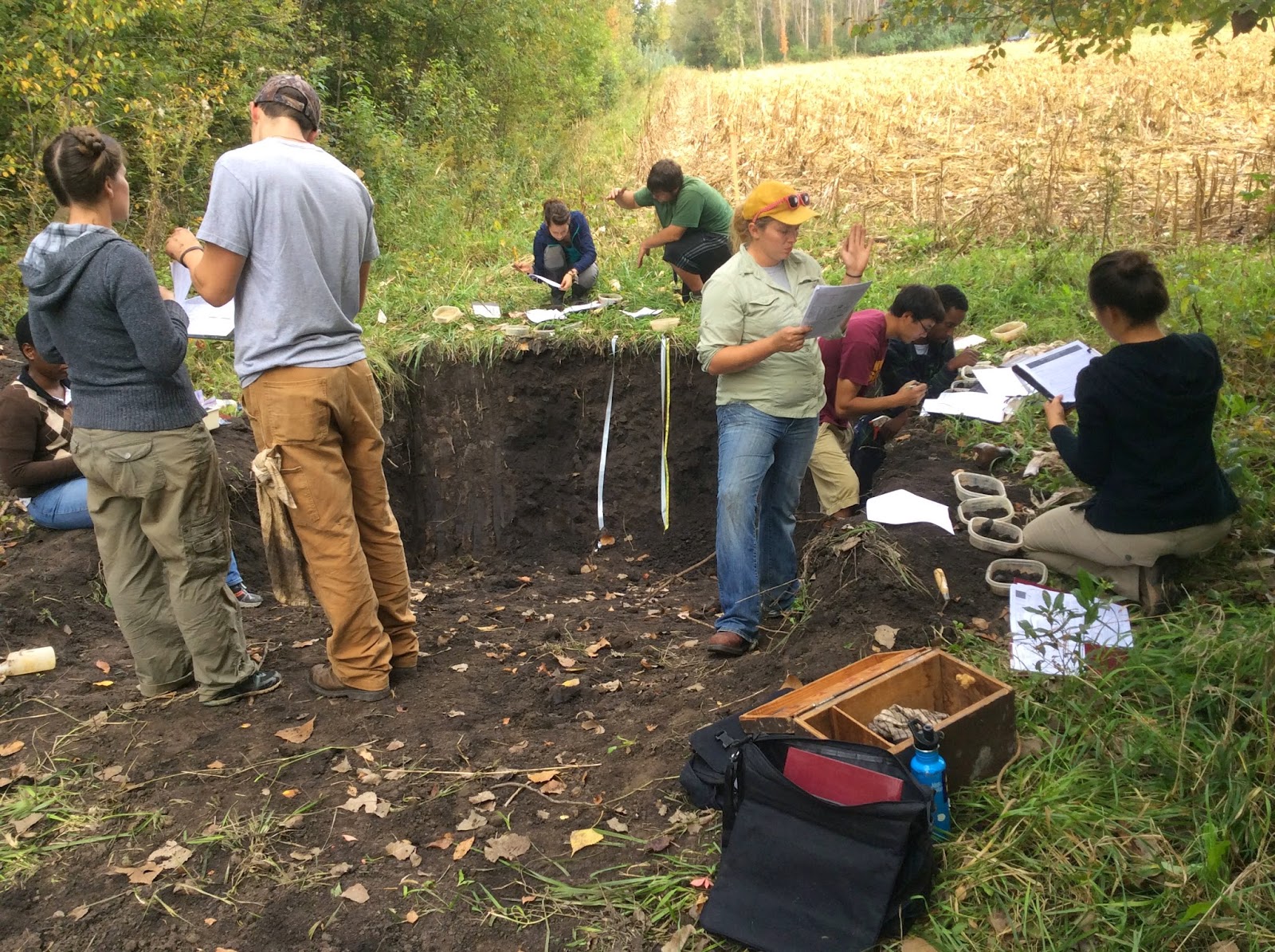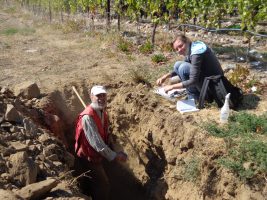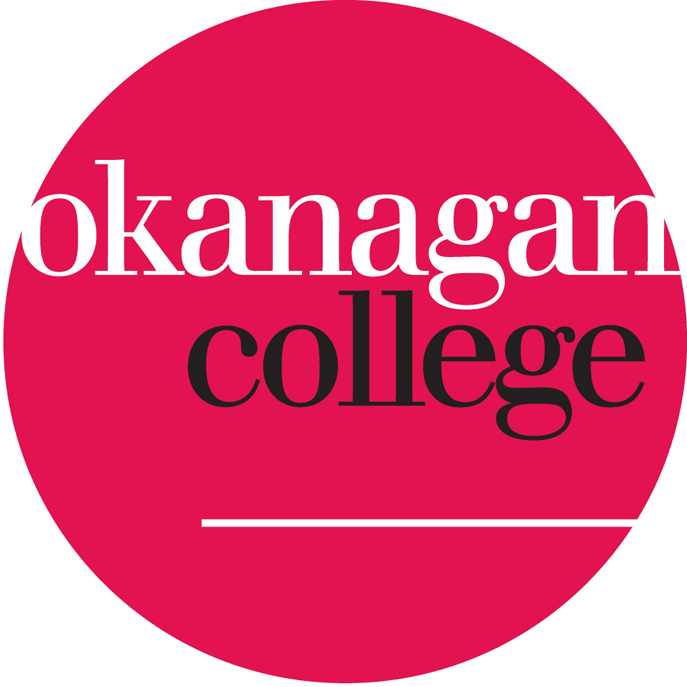Field Soil Description & Classification Course
- Start Date: June 07, 2017
- End Date: June 09, 2017
- Time: 9am-5pm
- City: Revelstoke BC
- Venue: Okanagan College - 1401 1 St W, Revelstoke, BC
- Instructor: Wayne A. Blashill, PAg
Course Description
 The emphasis of this course is to record accurate soil description data for subsequent soil classification in the field and verify with other groups. Techniques will be demonstrated to improve the quality of field determinations for soil texture, soil colour and % coarse fragment content. Soil remediation factors will be discussed in the field relating to agriculture, forestry, mining and oil & gas.
The emphasis of this course is to record accurate soil description data for subsequent soil classification in the field and verify with other groups. Techniques will be demonstrated to improve the quality of field determinations for soil texture, soil colour and % coarse fragment content. Soil remediation factors will be discussed in the field relating to agriculture, forestry, mining and oil & gas.
Participants can expect to be able to describe and classify forest soils by the end of the course. They will have a couple of new field techniques to improve the quality of their soils data. They will be able to determine the % sand in the field to aid in soil texture determination, using the “spoon” method invented by the instructor. They will have applied soil properties to assess soil salvage, soil remediation, restoration and reclamation activities.
The course is 3 days in duration. The first day (am) there will be a morning introduction, best practises for soil pit excavation, review of soil description technical data and soil ID (classification). The remainder of the course will be in the field. Participants will describe & record soil horizon designations & depths for organic and mineral layers, soil texture, soil colour, % coarse fragments, structure, pH, roots, pores, carbonates, effervescence, clay skins, mottles, rooting depth, drainage, seepage water depth and root restricting layers. Horizon designation & other factors will be used to classify the soil.
A course outline is available upon request.
Our instructor
 Mr. Wayne A. Blashill is a Professional Agrologist (PAg) with 40 years of experience in soils and ecology work. He has worked throughout BC, also in Alta, Sask. and in the USA on soil survey, TEM and PEM. He is currently a consultant in Summerland, BC.
Mr. Wayne A. Blashill is a Professional Agrologist (PAg) with 40 years of experience in soils and ecology work. He has worked throughout BC, also in Alta, Sask. and in the USA on soil survey, TEM and PEM. He is currently a consultant in Summerland, BC.
Mr. Blashill has taught Basic Forest Soils and Silviculture Prescriptions for the BC Continuing Studies Network (Kamloops), Inland Timber Management (Williams Lake) and Canfor (Chetwynd). He has knowledge in botany, evaporation theory, soil water balance modelling and soil chemistry. He recently completed soil survey on 325 vineyards in the Okanagan and Similkameen for the Summerland Research Station.
He has a BSc in Ecology from the University of Victoria and was an MSc candidate at the University of British Columbia Soil Science Department. He’s done soils field work with pedologist’s Terry Lord & Alex Green (Vancouver) and Charles Tarnocai (Ottawa).
Who should take this course?
This course is designed for people working in agriculture, forestry, mining, oil & gas or government agencies (Forest Service, Regional District) who may require initial or additional basic soils knowledge. Staff doing soil reclamation & remediation or reviewing soils data collected by consultants would benefit. TEM and PEM practitioners will have interest in this course. All are welcome.
Preparation & what to bring
Publications
It is recommended that students come having reviewed the following publications. All are available for purchase on-line, or can be viewed and printed via the links provided:
- Field Manual for Describing Terrestrial Ecosystems. 2010. LMH#25. Available through Queen’s Printers in Victoria. Pre-read section 2 Soils Description. Used to describe all soil attributes. **Highly recommended that each student have their own copy, although the instructor will have a two copies to share. See here
- The Soil Landscapes of BC. 1986. Please pre-read section three, and focus on section 3.5 as it addresses the Columbia Mountain soils. See here
- The Canadian System of Soil Classification. 1998. Used to classify soils, the instructor can share his copy with students, but students may want their own copy for future use. See here
Field equipment
Each soil pit group of three students will require the use of the following equipment. Students are asked to bring everything in this list that they have access to:
- Field Manual for Describing Terrestrial Ecosystems (write-in-the-rain version)
- Munsell Colour Book. The instructor will have some to share. (Note that photocopied versions will not provide accurate colour, so students should purchase a hard copy if wanting their own copy. You can do that here.)
- pH Kit
- hand-lens (10x)
- mechanical pencils
- trowel
- soils knife
- water bottle (full)
- tape measure (cm)
- golf tees
- clipboard
- plastic bags
Each student must come prepared with the following personal gear:
- hiking boots
- rubber boots
- rain gear and warm clothing
- lunch and snacks (if not purchasing through CMI)
- water (note that there will not be any beverages included in the optional bagged lunches)
- transportation (though, we will arrange carpooling)
Thank you to our event host and partner:


